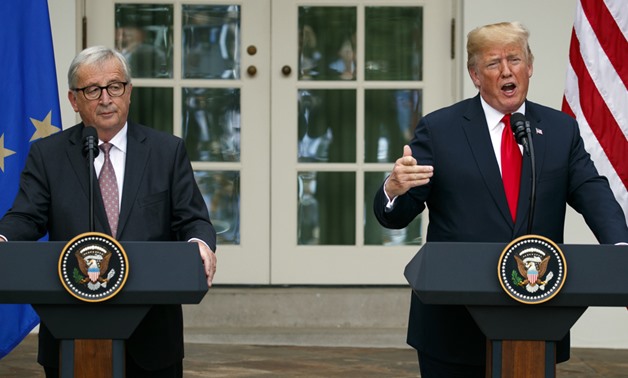
The U.S. Commerce Department will continue its probe into whether auto imports pose a national security risk despite ongoing trade talks with the European Union - Reuters
ABOARD AIR FORCE ONE - 27 July 2018: The U.S. Commerce Department will continue its probe into whether auto imports pose a national security risk despite ongoing trade talks with the European Union, but President Donald Trump asked that no action be taken at this time, Commerce Secretary Wilbur Ross said on Thursday.
"We've been directed by the president to continue the investigation, get our material together, but not actually implement anything pending the outcome of the negotiation," Ross told reporters aboard Air Force One.
The Trump administration in May launched a probe into whether car and auto part imports pose a national security risk. Last week, major automakers warned imposing tariffs of 25 percent on imported cars and parts would raise the price of U.S. vehicles by $83 billion annually, cost hundreds of thousands of jobs and sharply reduce auto sales.
"The work is continuing. Probably sometime in the month of August we’ll be willing to render a report," Ross said. He added that tariffs on foreign autos "may not be necessary or it may be necessary - we will see."
Foreign governments and automakers reject the suggestion that imported vehicles pose a national security risk and no automaker has backed the idea. They have insisted the probe was only opened to press for concessions in trade talks.
"We had to take a route of trying to make it more painful for the other parties to continue bad practices than to drop them. And that’s why he put up tariffs to put pressure on. And it seems to be starting to work," Ross said. "If we hadn’t had the threat of automotive tariffs, we never would have gotten to the point where we are now."
Trump's threat to impose the 25 percent tariffs on auto imports, which would harm European carmakers such as BMW and Volkswagen, was put on hold after he met European Commission President Jean-Claude Juncker at the White House on Wednesday to discuss ongoing trade disputes.
Juncker called Trump's decision to delay any tariffs as long as trade talks continue "a major concession."
Other U.S. officials on Thursday also touted an agreement with the EU to negotiate a solution.
The Alliance of Automobile Manufacturers, a trade group representing major U.S. and foreign automakers, said "bilateral negotiations are a more effective approach to resolving trade barriers, not increasing tariffs."

Comments
Leave a Comment